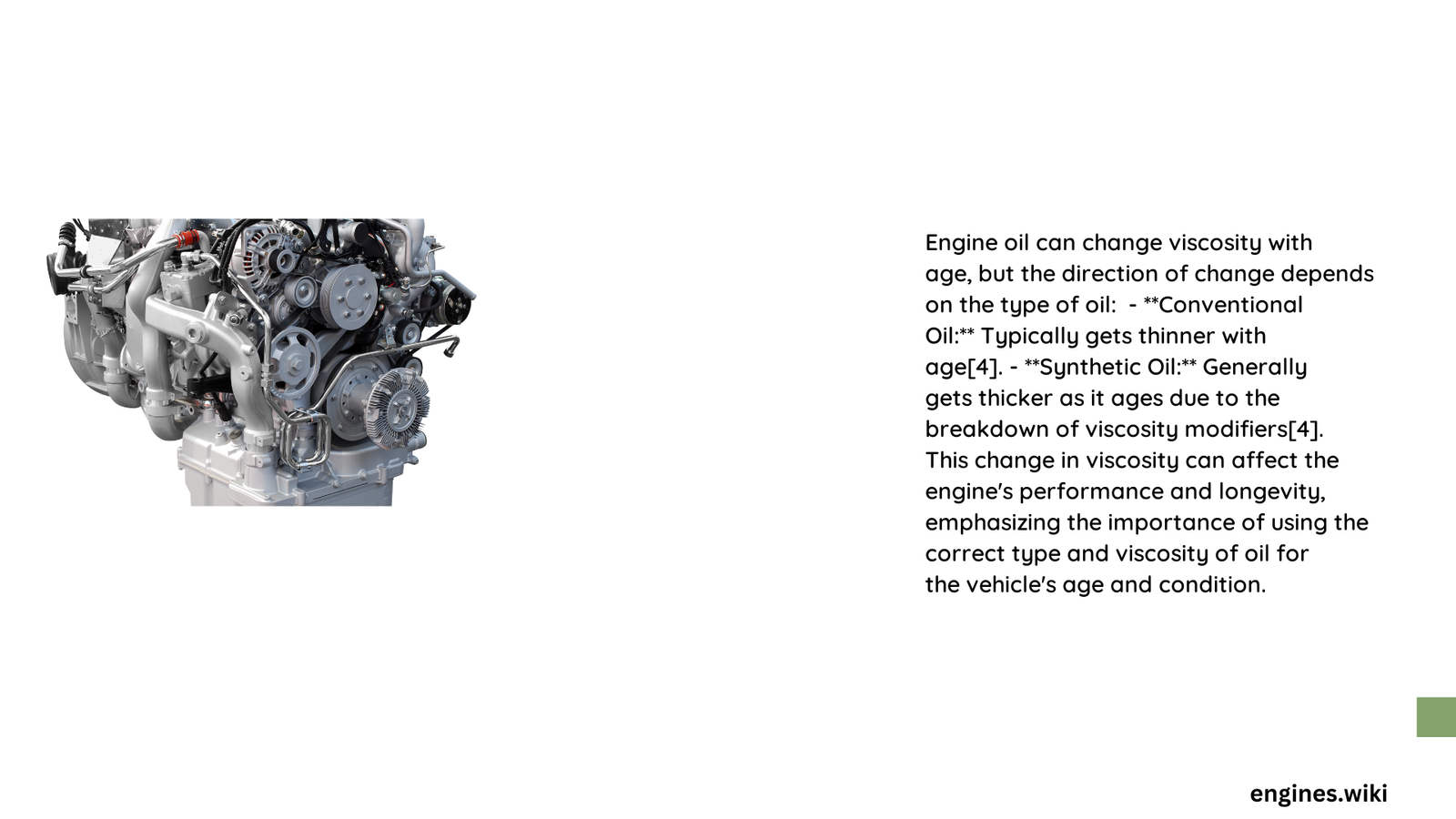Engine oil undergoes complex molecular transformations during its service life, experiencing viscosity changes influenced by temperature, mechanical stress, and chemical degradation. Understanding these dynamics is crucial for maintaining optimal engine performance and preventing potential mechanical failures. Vehicle owners must recognize that oil’s behavior is not static but a dynamic process involving multiple environmental and operational factors.
What Happens to Engine Oil Viscosity Over Time?
Can Engine Oil Change Its Thickness Naturally?
Engine oil does not inherently become thicker or thinner in a straightforward manner. Instead, its viscosity undergoes nuanced modifications based on several critical factors:
Molecular Breakdown Mechanisms
- Oxidation Process: Chemical reactions cause gradual molecular degradation
- Temperature Exposure: Extreme heat accelerates viscosity transformation
- Mechanical Stress: Engine operation introduces additional molecular strain
What Factors Influence Oil Viscosity Modification?
| Factor | Impact on Viscosity | Potential Consequences |
|---|---|---|
| Engine Wear | Potential Viscosity Increase | Reduced Lubrication Efficiency |
| Temperature | Direct Viscosity Modification | Performance Fluctuations |
| Oil Quality | Stability Variation | Long-Term Mechanical Protection |
How Do Different Oil Types Respond to Aging?
Synthetic oils demonstrate superior resistance to viscosity changes compared to conventional oils. Their advanced molecular structure provides:
- Enhanced thermal stability
- Reduced oxidation susceptibility
- Consistent performance across broader temperature ranges
What Scientific Mechanisms Drive Oil Viscosity Changes?
Chemical Transformation Processes
- Thermal Degradation: High-temperature environments break down oil molecules
- Contaminant Accumulation: Particulate matter alters oil’s molecular composition
- Additive Depletion: Performance-enhancing chemicals gradually diminish
Can Viscosity Modifications Harm Your Engine?
Significant viscosity alterations can potentially compromise engine health:
- Increased Friction: Thicker oil reduces smooth mechanical movement
- Reduced Lubrication: Thin oil provides inadequate component protection
- Accelerated Wear: Inappropriate viscosity increases mechanical stress
Practical Recommendations for Oil Maintenance
- Regular Oil Analysis: Periodic professional viscosity testing
- Manufacturer Guidelines: Follow recommended oil change intervals
- Quality Oil Selection: Choose high-performance synthetic variants
- Temperature Considerations: Select oils matching your driving environment
Technical Viscosity Measurement Insights
Viscosity measurements involve complex scientific assessments:
– Kinematic Viscosity: Measures fluid’s resistance to flow
– Dynamic Viscosity: Evaluates internal fluid friction
– Viscosity Index: Indicates performance across temperature ranges
Conclusion

Understanding engine oil’s behavior requires recognizing its dynamic nature. While oil doesn’t simply get thicker or thinner, it undergoes sophisticated molecular transformations influenced by multiple variables.
Expert Recommendations
- Monitor oil condition regularly
- Use high-quality synthetic oils
- Perform consistent maintenance
- Understand your specific engine’s requirements
Technical Precision Matters
Vehicle owners should approach oil management scientifically, recognizing that viscosity is a complex, multifaceted characteristic requiring nuanced understanding.
